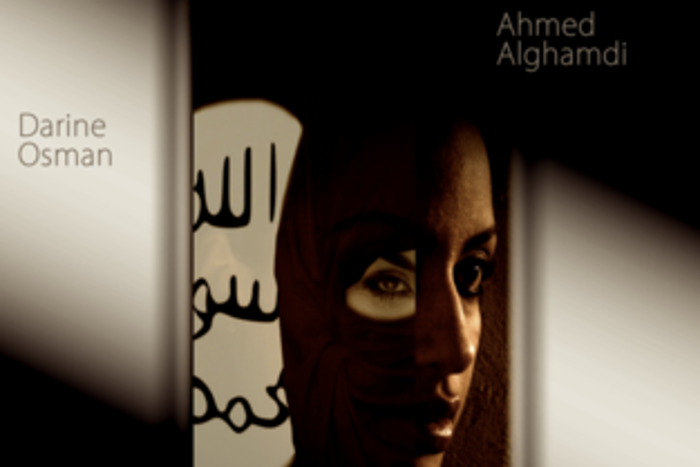
NEW YORK — In the global fight against terrorism, drowning in the noise of political rhetoric, fear-inducing news and bullet-firing drones, an arguably more effective – and certainly a creative – method of uniting people in the muddled battle against extremism is film.
A Saudi-American filmmaker, Abdul Almutairi, aims to do just that with “Daesh Girl”, a short film about Sarah, a woman who goes to great lengths to save her friend, Noorah, from the hands of ISIS militants in Fallujah. She daringly pretends to be a supporter and is recruited as a fighter.
The filmmakers describe “Daesh Girl” as, “A compelling story of love, death and sacrifice, set against a backdrop of war, hatred and intolerance, in one of the world’s most troubled regions.”
At a screening in New York, Almutairi told The Arab American News the fictional story was inspired by real accounts of Kurdish women who sneak in or offer to fight Al-Qaida and ISIS strongholds to free relatives held captive. They are stories that largely go untold by the victims and the media.
As they reviewed accounts of these stories for more than a year, Almutairi and his co-writer, Sarah Louise Moyer, set out to design a film to expose the grim realities of the region’s people.
“You can use art and film as a powerful element to create a voice for the voiceless in the Middle East,” Almutairi said.
“Daesh Girl” is a noble attempt to strip away the associated politics and prevailing fear about ISIS and the Arab World and aims to refocus the conversation on the shrouded pain that families in war-torn regions endure.
Writing the script was a challenge, as was the filming, which took place in Philadelphia, New Jersey and Saudi Arabia. Almutairi said they had to inform local police, the FBI and NSA of the filming, as the crew carried and set up scenes using ISIS-style props.
After production, the crew faced another obstacle – support.
Of the 500 film institutions to which the movie was submitted, only two accepted it. Almutairi said many of the groups were put off by the subdued tone in which the film depicted ISIS. For many, it was not “anti-ISIS” enough.
The filmmakers, however, did not set out to take sides. Almutairi said he intentionally deferred from focusing on portraying the terrorist group in a bad light. Instead, he focused on thoughtful dialogue and logical sequences.
“We know what they do,” he said. “Part of being a filmmaker is not to show clear sides.”
He pointed to films directed by Martin Scorsese that tell stories of romance and crime, within the lives of gangs and the Mafia. Almutairi said Scorsese does not demonize the Mafia in his films. As a director, Almutairi said his job is to reveal what is really happening, not include a happy ending where the militants are defeated “Kill Bill style.”
Almutairi added that such a film being directed by a Saudi Arabian filmmaker counters the narrative and sends a strong message – that moderate Muslims worldwide are joined in the fight against terrorism.
He said the film’s cast and crew are remarkably diverse and their nationalities span 14 countries and subscribe to a plethora of religions and sects.
“It is an international language of cinema,” Almutairi said, “where everyone comes together to create an avenue for discussion and push the boundaries through art and cinema to prove to the world that, ‘yeah, we’re standing against them.'”






Leave a Reply